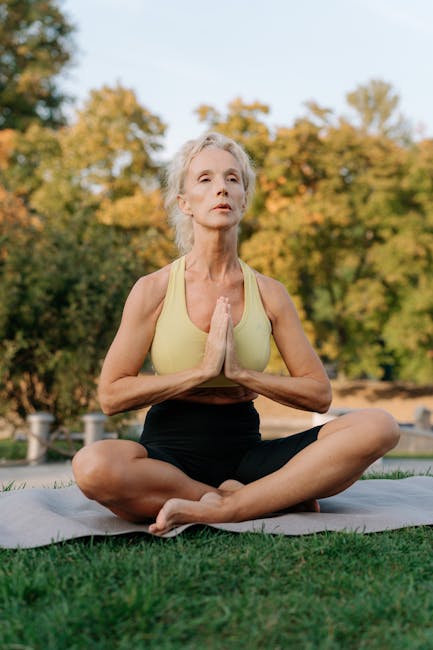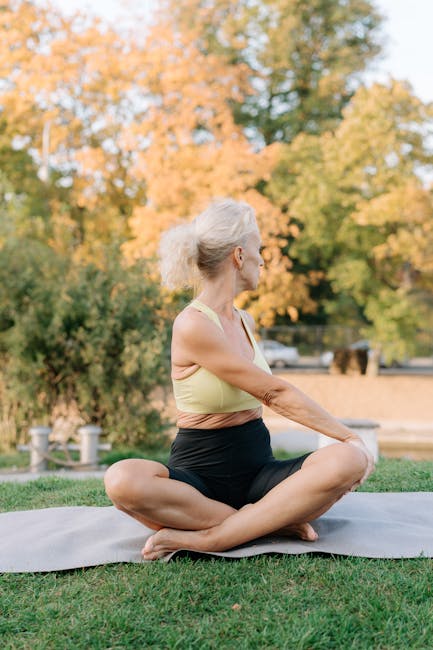I. Introduction to Hatha Yoga
Hatha Yoga, a term that encompasses a wide range of physical practices within the broader concept of Yoga, is a discipline that focuses on the balance and union of opposites. Originating from ancient India, the term ‘Hatha’ is derived from ‘Ha’ meaning ‘sun’ and ‘Tha’ meaning ‘moon’, symbolizing the balance of opposing energies. In the modern world, Hatha Yoga is often associated with a gentle and slow-paced practice, making it an excellent choice for beginners.
With the rise of stress and anxiety in today’s fast-paced society, Hatha Yoga has gained immense popularity. It serves as a powerful tool to promote physical health, mental clarity, and emotional balance, making it highly relevant and beneficial in our modern lifestyle. #HathaYoga
II. Benefits of Practicing Hatha Yoga
Practicing Hatha Yoga offers a myriad of benefits that extend beyond the yoga mat and into everyday life. These benefits can be broadly categorized into physical and mental/emotional benefits.
A. Physical benefits
- Improved flexibility and strength: Regular practice can significantly enhance your body’s flexibility and strength, leading to better muscle tone and improved overall fitness.
- Enhanced posture and balance: Hatha Yoga poses help correct body alignment, leading to improved posture and balance.
- Increased energy levels: The practice revitalizes the body, replenishes energy levels, and promotes a sense of well-being.
B. Mental and emotional benefits
- Stress reduction and relaxation: Hatha Yoga promotes relaxation and helps in stress management. The practice of breathing exercises and meditation techniques aids in calming the mind.
- Improved focus and concentration: The practice enhances mental clarity, improves focus and concentration, and promotes a balanced state of mind.
- Enhanced self-awareness and mindfulness: Regular practice fosters a deeper connection with the self, promoting self-awareness and mindfulness. #MindBodyBalance

Photo by cottonbro studio on Pexels
III. Key Principles and Techniques of Hatha Yoga
Hatha Yoga is based on three key principles: Asanas (poses), Pranayama (breathing exercises), and Meditation. These principles work together to create a holistic practice that benefits both the body and mind.
A. Asanas (Yoga poses)
Asanas are the physical postures practiced in Hatha Yoga. They range from basic poses suitable for beginners to more complex poses for intermediate and advanced practitioners. Regular practice of these asanas can lead to improved flexibility, strength, and balance.
B. Pranayama (Breathing exercises)
Pranayama, or breath control, is a crucial aspect of Hatha Yoga. Different pranayama techniques have various benefits, such as calming the mind, improving focus, and increasing energy levels. Incorporating pranayama into your yoga practice can enhance the benefits of the asanas and meditation.
C. Meditation and relaxation techniques
Meditation is an integral part of Hatha Yoga. It helps to calm the mind, reduce stress, and promote a sense of peace and well-being. Various relaxation techniques, such as Yoga Nidra, can also be incorporated into your practice for stress relief. #YogaJourney

Photo by cottonbro studio on Pexels
IV. Tips for Starting a Hatha Yoga Practice
Starting a Hatha Yoga practice can be a transformative journey. Here are some tips to help you get started:
- Finding a qualified instructor or studio: A qualified instructor can guide you through the poses, ensure correct alignment, and help prevent injuries.
- Setting realistic goals and expectations: Start slow and gradually increase the intensity and duration of your practice. Remember, yoga is not about perfection but about progress and self-discovery.
- Creating a consistent practice routine: Consistency is key in yoga. Try to set aside a specific time each day for your practice.
- Listening to your body and practicing self-care: Pay attention to your body’s signals and respect its limits. Remember to rest and hydrate after each session. #YogaForHealth
V. Frequently Asked Questions about Hatha Yoga
Here are some commonly asked questions about Hatha Yoga:
A. Can anyone practice Hatha Yoga?
Yes, Hatha Yoga is suitable for people of all ages and fitness levels. It’s always a good idea to consult with a healthcare provider before starting any new exercise regimen, especially if you have any health concerns.
B. How often should one practice Hatha Yoga?
For beginners, practicing two to three times a week is a good start. As you become more comfortable, you can gradually increase the frequency of your practice.
C. What should I wear and bring to a Hatha Yoga class?
Wear comfortable clothing that allows for easy movement. Bring a yoga mat, a towel, and a water bottle. Some people also like to bring props like yoga blocks or straps to help with certain poses.
D. Can Hatha Yoga help with specific health conditions?
Yes, Hatha Yoga can be beneficial for various health conditions, including stress, anxiety, depression, chronic pain, and more. However, it’s important to consult with a healthcare provider before starting a yoga practice for a specific health condition.

Photo by cottonbro studio on Pexels
VI. Conclusion
In conclusion, Hatha Yoga is a holistic practice that offers numerous physical, mental, and emotional benefits. It promotes flexibility, strength, stress reduction, improved focus, and self-awareness. The practice involves asanas, pranayama, and meditation, all of which work together to create a balanced and mindful lifestyle.
Whether you’re a beginner or an experienced yogi, Hatha Yoga can be a rewarding and transformative journey. So why wait? Start your Hatha Yoga journey today and experience the profound benefits it has to offer. #YogaInspiration
For more insights into yoga and meditation, check out our posts on The Power of Meditation: A Journey Within and Socratic Questioning. Happy practicing! #YogaCommunity



